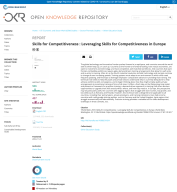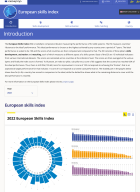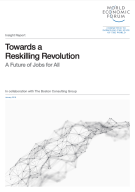Filter by
Publications and Documents (451)
RSS
This report reflects the findings of the 2018 update to the Cedefot and Eurofound's projections to identify changes in the occupational wage structure and the task content of jobs to up to 2030.

This note seeks to help the public and private sectors understand what is currently being done to help achieve workforce skills convergence, and to begin thinking about how they might employ public-private arrangements to incentivize training at firms of all sizes.

This report provides policy directions for consideration by all governments through identifying, discussing and analysing a range of drivers at the root of the digital gender divide.

The European Skills Index measures the comparative performance of EU countries’ individual skills system through the years.

This report examines recent trends and underlying causes in labor market outcomes, to assess how the importance of skills for productive employment has evolved.

This guide uses peer-to-peer, activity-based learning and includes a training guide, a facilitator’s guide and two power point presentations that can be used for training of facilitators and direct beneficiaries.

This report demonstrates the power of a data-driven approach to discover reskilling pathways and job transition opportunities.

This article proposes updating the relevant advanced training recommendations to better reflect the skills and knowledge needs of the construction industry today. The paper presents an initial concept of new training regulations.

This paper ambition outlines a strategic approach to digital skills and competence (DSC) and digital and online learning (DOL) in vocational education and training (VET) in the ETF’s partner countries.

Arts Council England and Creative & Cultural Skills commissioned a large survey in 2017 to understand skills gaps and shortages in the creative and cultural sector in Britain. The report covers the main findings and the implications for the sector.
